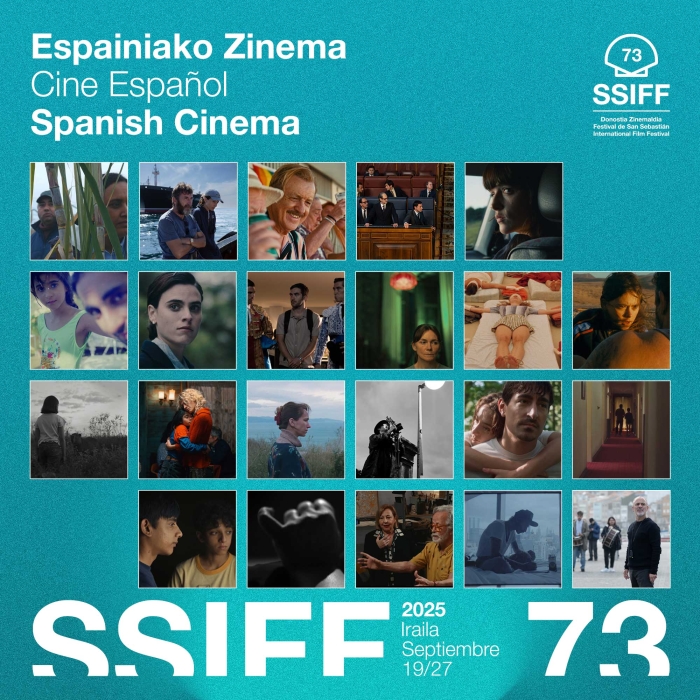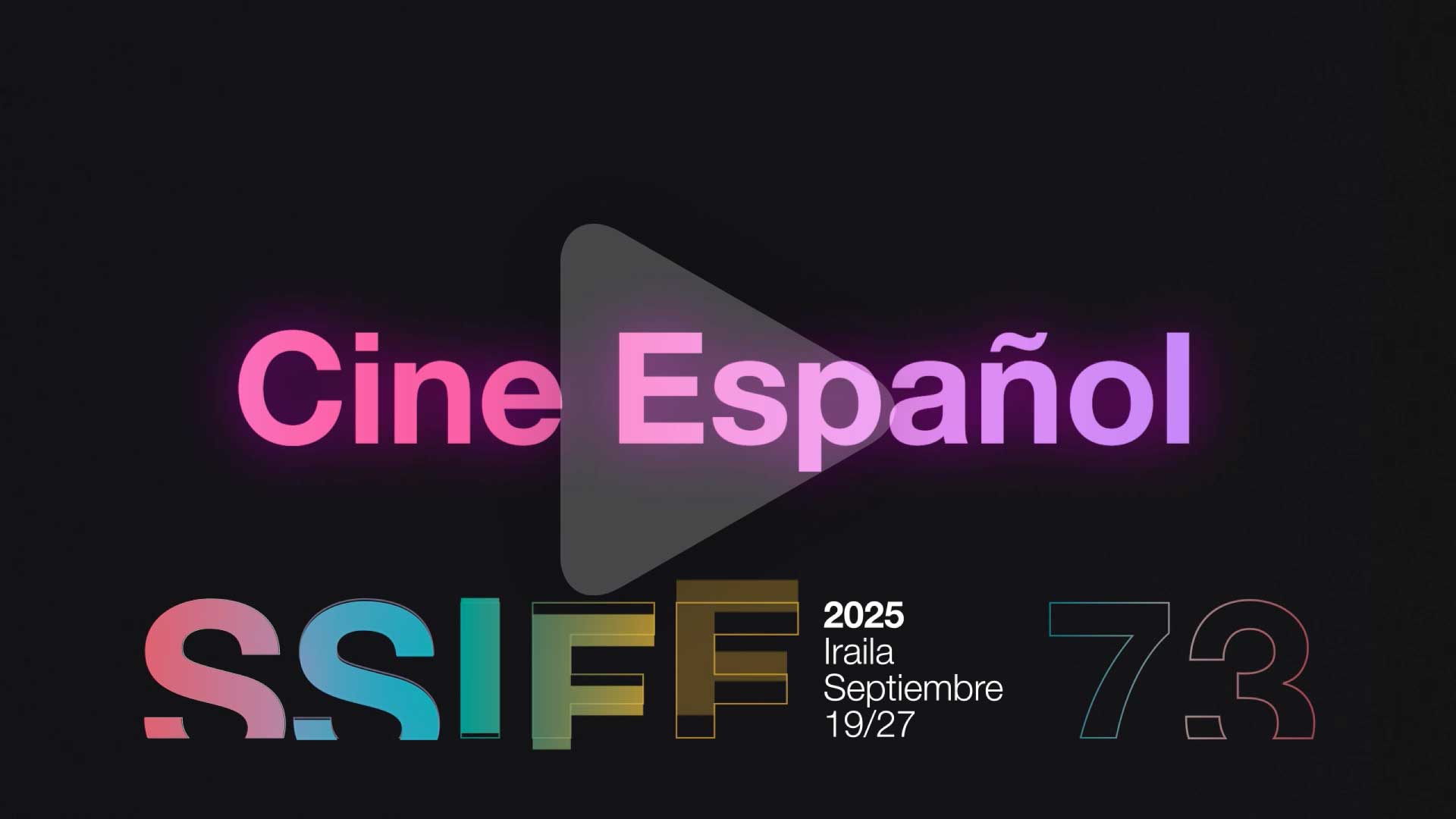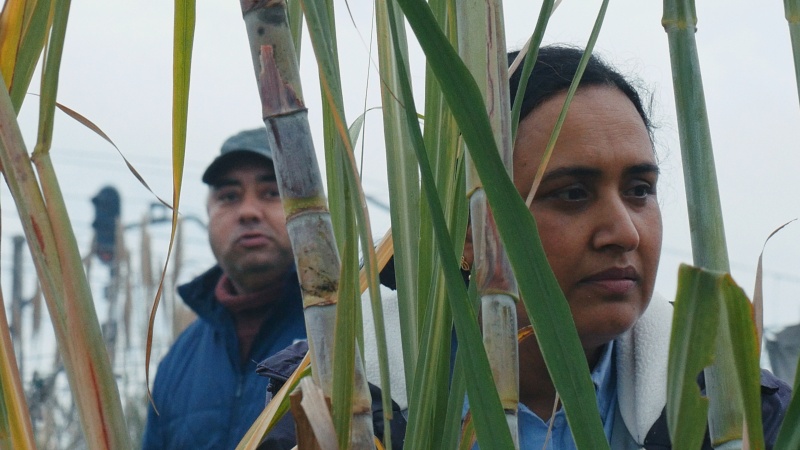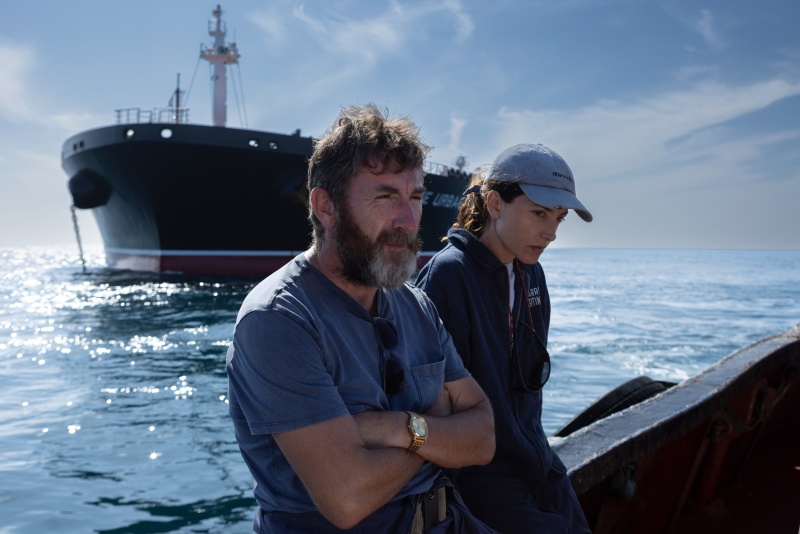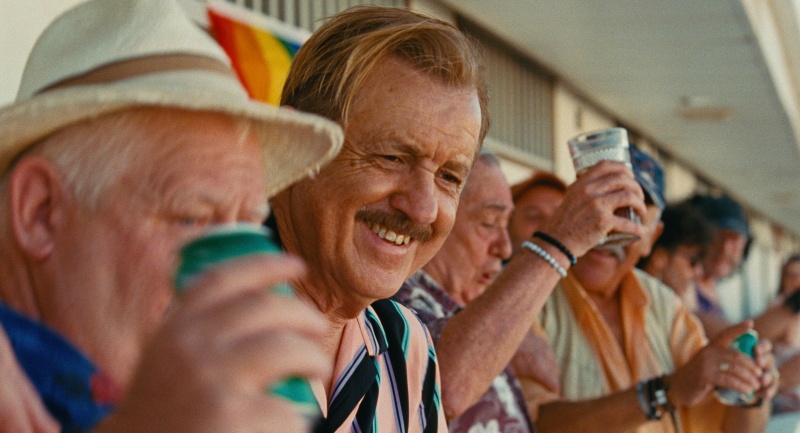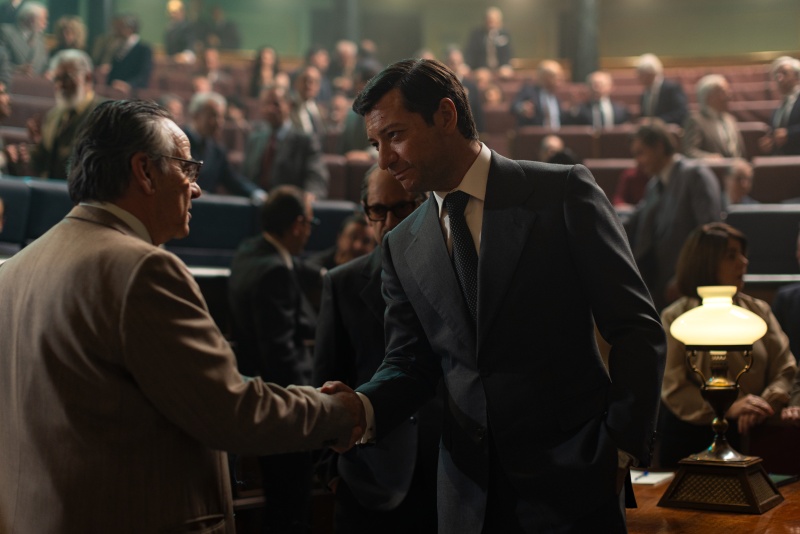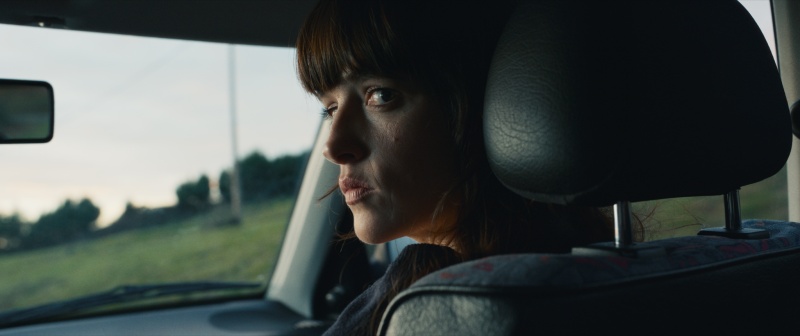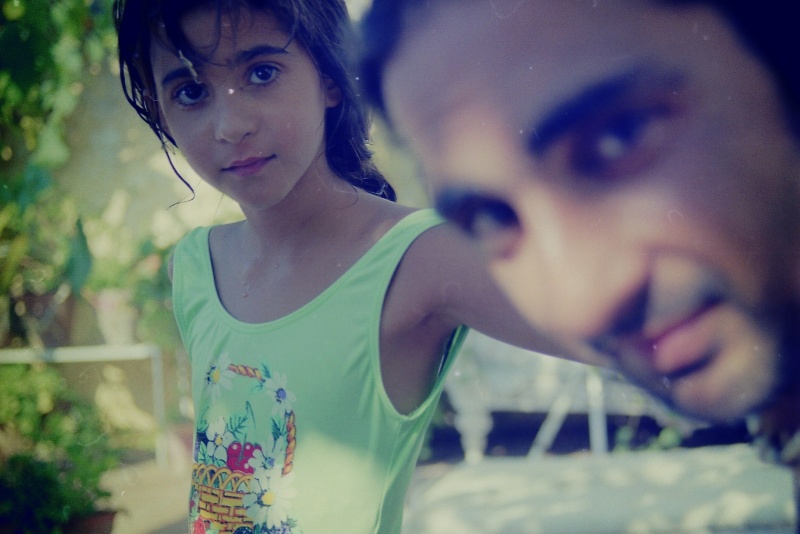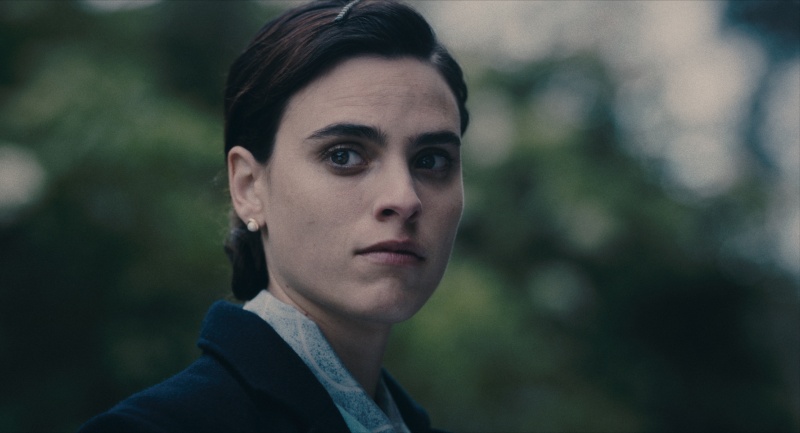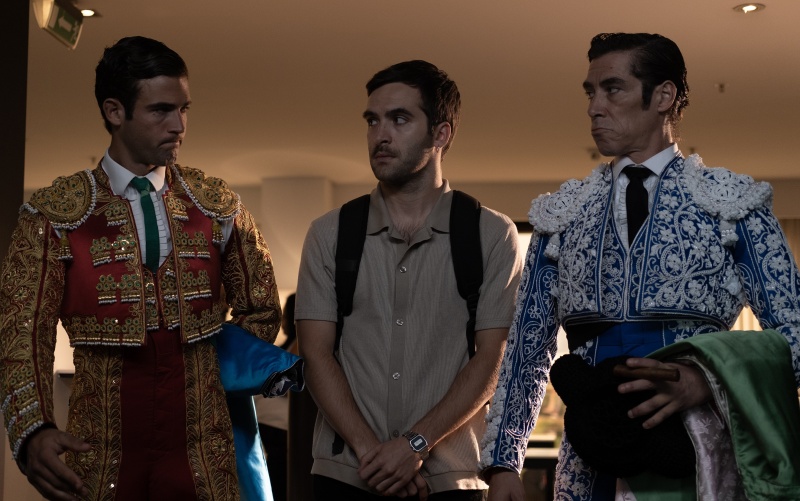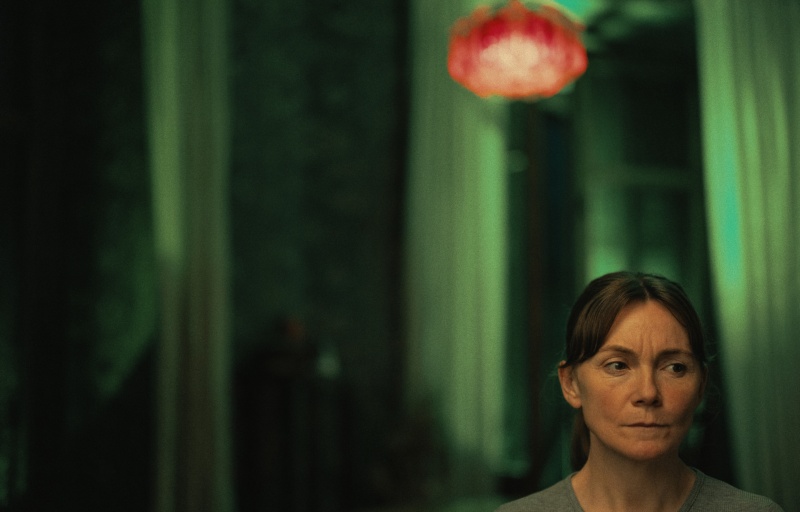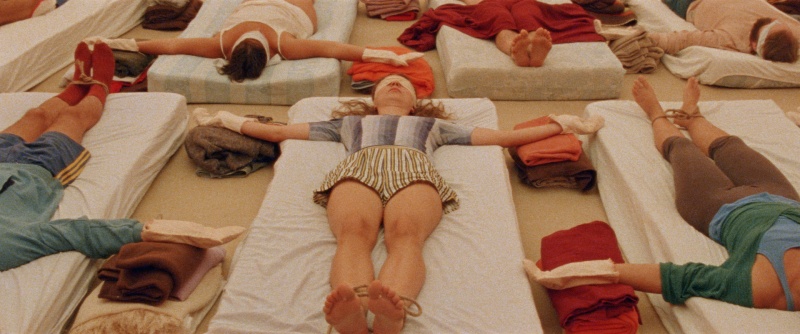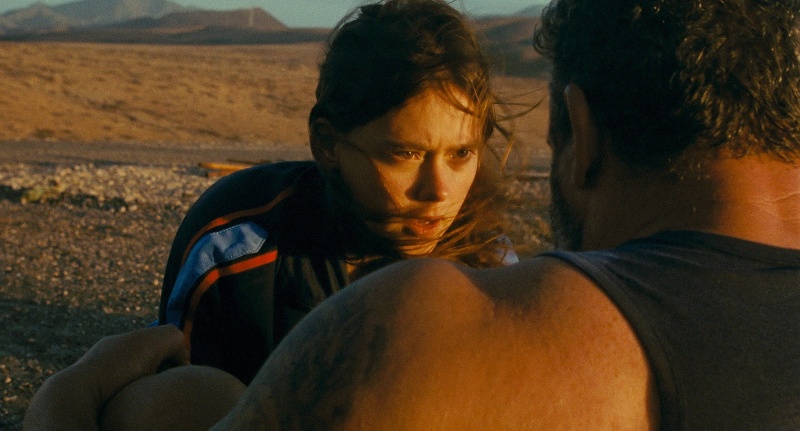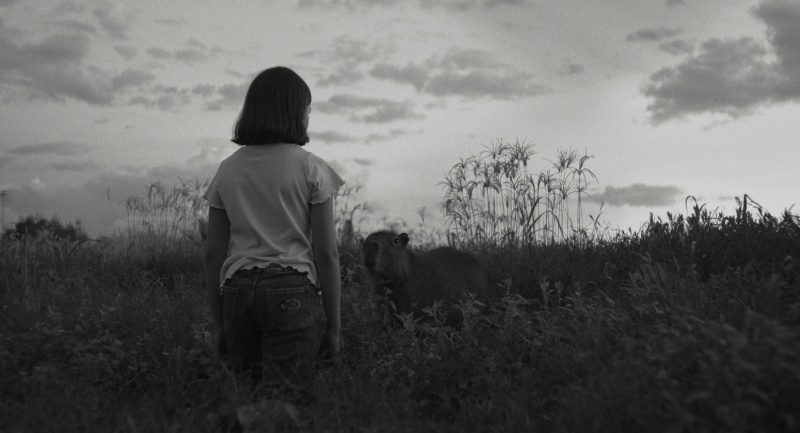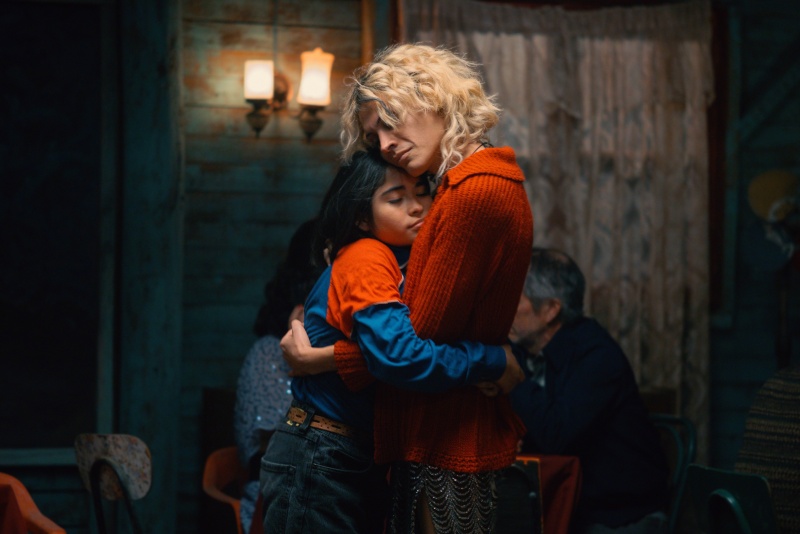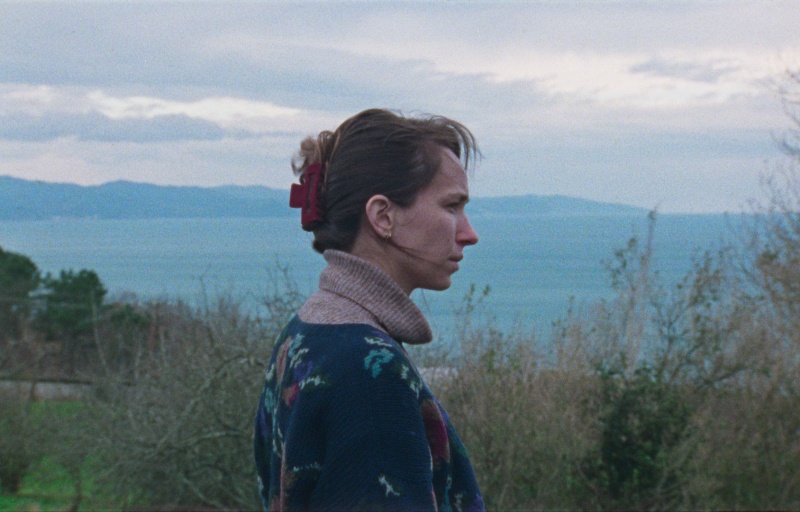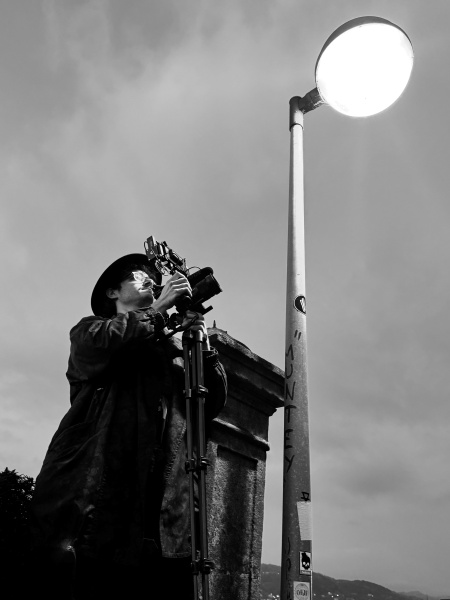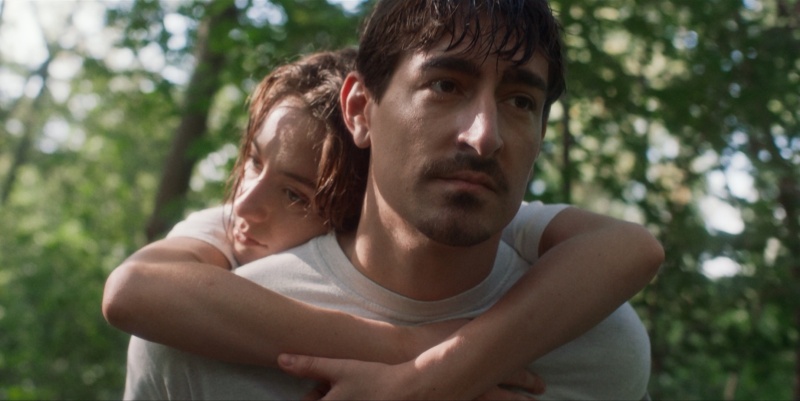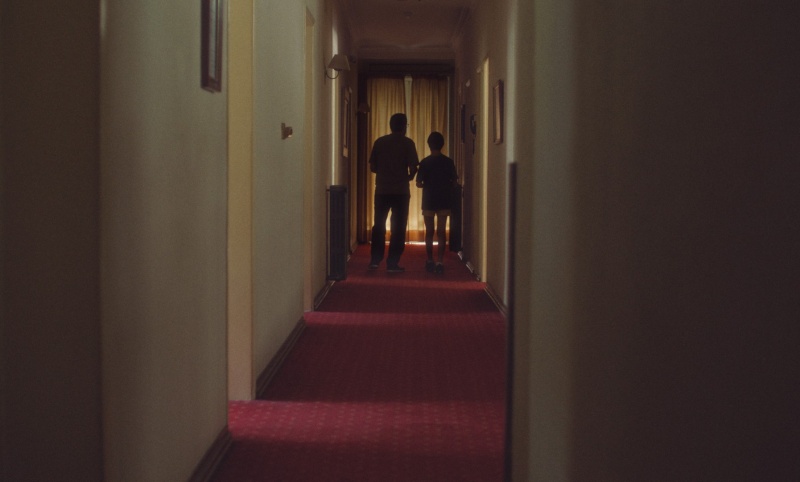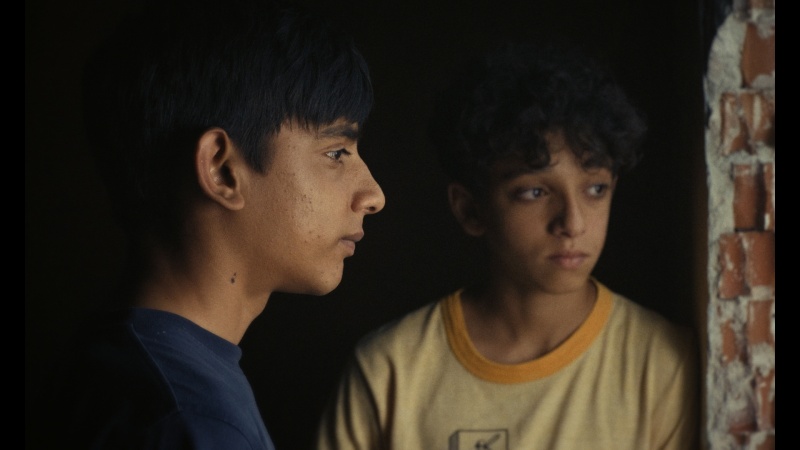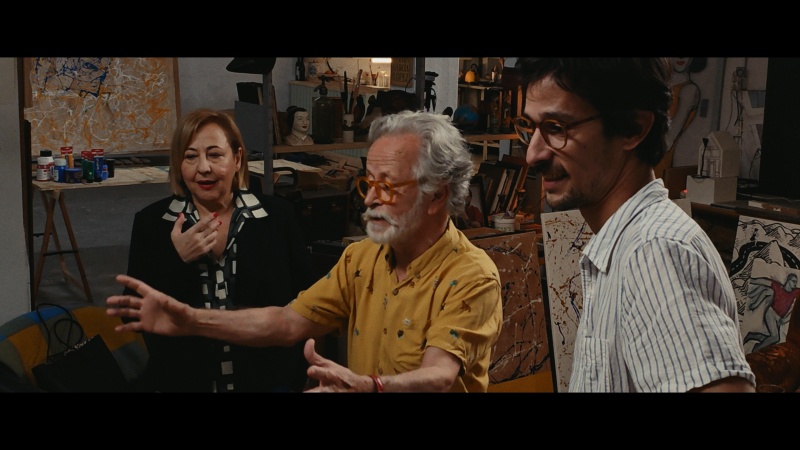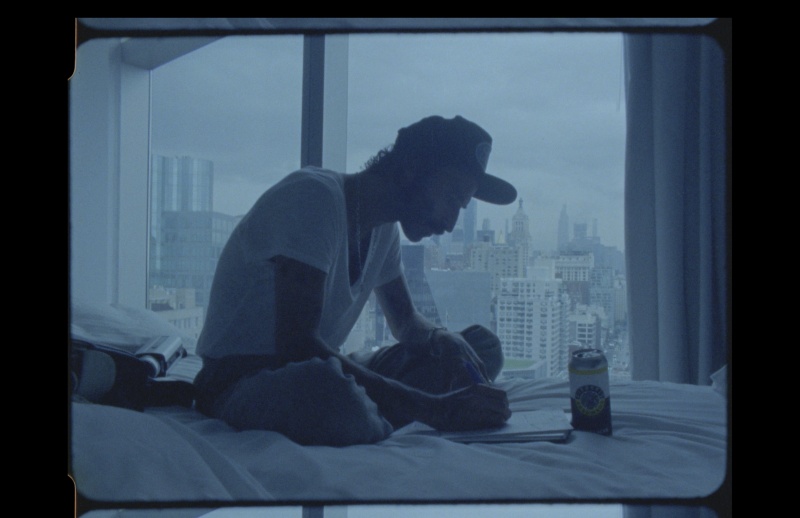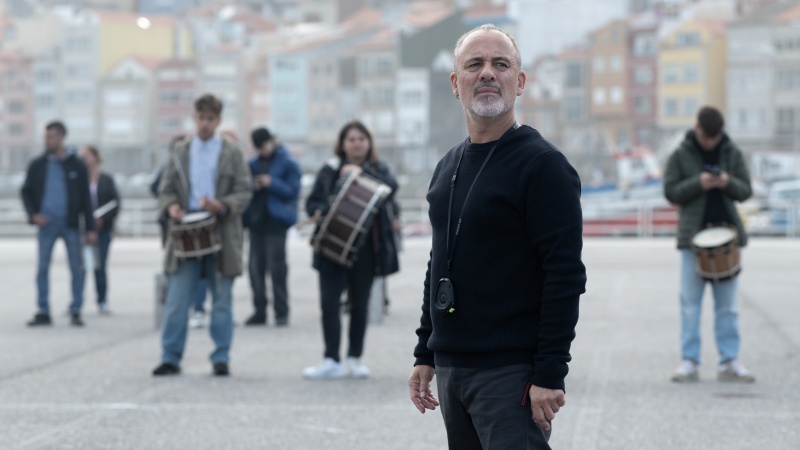The feature films ‘Karmele’ and ‘Flores para Antonio’ and the series ‘Zeru ahoak’ and ‘La suerte’ will feature as part of the Special Screenings
The debuts from Irati Gorostidi Agirretxe and José Alayón will compete in the New Directors section
Today in Madrid, the Academia de las Artes y las Ciencias Cinematográficas hosted the announcement of the 22 titles with Spanish production (17 feature films, 2 shorts and 3 series) lined up from 19-27 September in the Official Selection and in New Directors, Horizontes Latinos, Zabaltegi-Tabakalera, Perlak, Made in Spain and Velodrome, at the San Sebastian Festival’s 73rd edition.
Competitive Official Selection
This year’s Official Selection will assemble filmmakers who started their careers in San Sebastián, as is the case of Alberto Rodríguez, Jose Mari Goenaga and Aitor Arregi, all accompanied by the Festival in their successive films as part of its wholehearted support of Spanish cinema. Also returning is José Luis Guerin, winner of the Special Jury Prize with En construcción / Work in Progress.
Jose Mari Goenaga (Ordizia, 1976) and Aitor Arregi (Oñati, 1977) compete yet again for the Golden Shell with Maspalomas. Actor Jose Ramon Soroiz portrays the 77 year-old Vicente as he has the time of his life in Maspalomas. Other works from the Moriarti collective, the filmmaking duo in which Jon Garaño also participates, are Lucio (Zabaltegi, 2007) and 80 egunean / For 80 Days (Zinemira, 2010). In the Official Selection, they have premiered Loreak / Flowers (2014); Handia / Giant (2017), winner of the Special Jury Prize and the Irizar Award, and La trinchera infinita / The Endless Trench (2019), Silver Shell for Best Director, Best Screenplay Award, Irizar Award and the FIPRESCI Prize. Lastly, Marco (2024) closed Perlak after having its release in the Orizzonti section at Venice.
Almost 25 years after carrying off the Special Jury Prize and the FIPRESCI Prize in San Sebastián thanks to En construcción / Work in Progress (2001), José Luis Guerin (Barcelona, 1960) returns to the official competition with a new non-fiction, Historias del buen valle / Good Valley Stories, shot in Vallbona, a Barcelona district with a high percentage of migrant population. Guerin premiered his first feature film, Los motivos de Berta / Berta’s Motives (1984), at the Berlin Festival, later programmed in its Spanish Cinema Panorama, followed by Innisfree (Zabaltegi, 1990) and Tren de sombras / Train of Shadows (1997), both presented at Cannes. In addition, En la ciudad de Sylvia / In the City of Sylvia (2007) competed in Venice, where Guest (Zabaltegi-Specials, 2010) also participated in the Orizzonti section.
Alberto Rodríguez (Sevilla, 1971) will present Los Tigres, written with Rafael Cobos, in which Antonio de la Torre and Bárbara Lennie play siblings who work as professional divers for an oil company. Their lives change when Antonio has an accident and learns that he can no longer dive. Rodríguez, who showed El factor Pilgrim / The Pilgrim Factor (co-directed with Santi Amodeo, 2000) and El traje / The Suit (2002) in New Directors, will participate for the seventh time in the Official Selection, where he presented 7 vírgenes / 7 Virgins (2005), winning Juan José Ballesta the Silver Shell for Best Actor, and La isla mínima / Marshland (2014), bagging the same accolade for Javier Gutiérrez, as well as the best photography award and 10 Goyas landed at a later date. Eduard Fernández won another Silver Shell with El hombre de las mil caras / Smoke & Mirrors (2016), following which Rodríguez opened the Festival out of competition with Modelo 77 / Prison 77 (2022). The filmmaker, the first to premiere a series in the Official Selection with La peste / The Plague (2017), was also one of the directors of the series, Apagón / Offworld (2022).
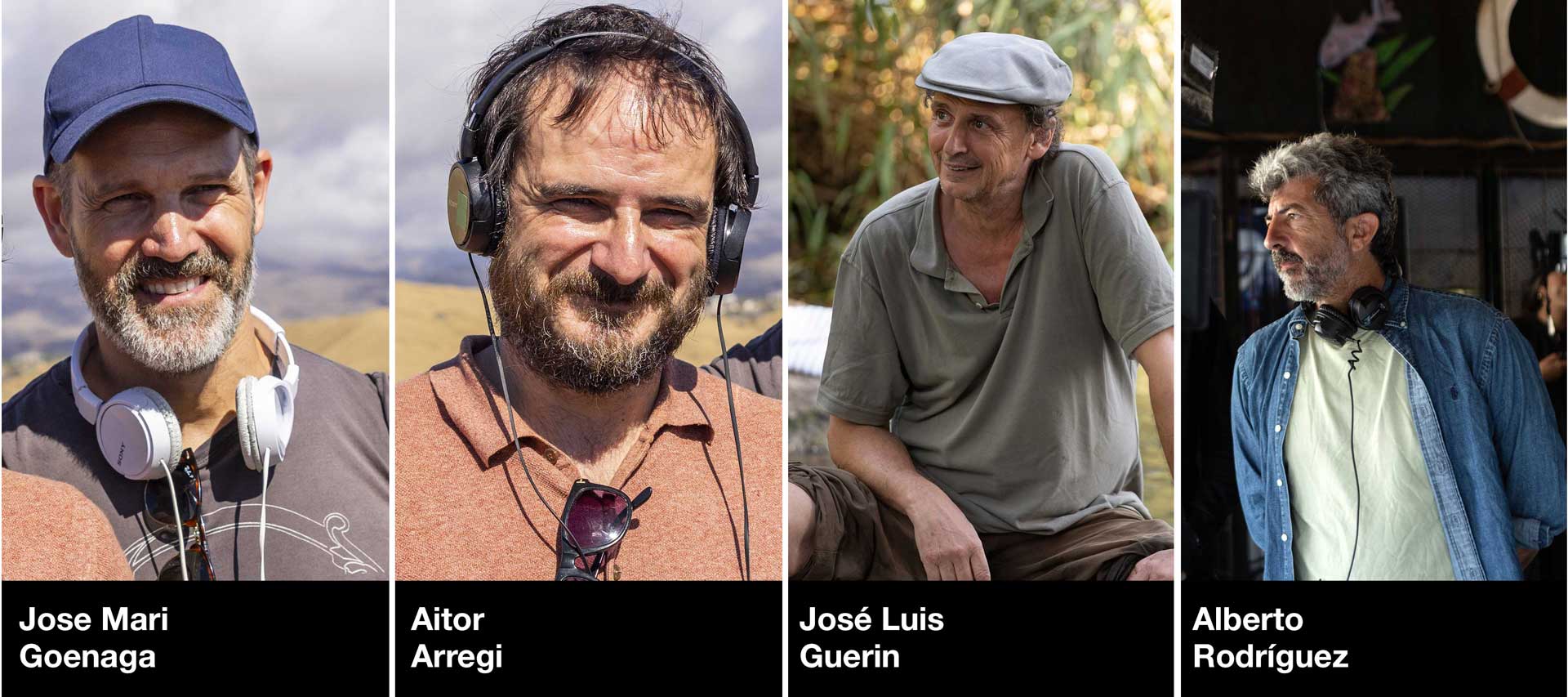
One feature film and one series in the Official Selection out of competition
Agustín Díaz Yanes (Madrid, 1950) returns to the Official Selection, this time out of competition, with Un fantasma en la batalla / She Walks in Darkness, a feature film taking its inspiration from the biggest ever undercover operation against ETA telling the story of a young female Civil Guard who worked for more than a decade as an undercover agent in the terrorist organisation. Susana Abaitua heads a cast also featuring Andrés Gertrudix, Iraia Elias, Raúl Arévalo and Ariadna Gil. Díaz Yanes won the Special Jury Prize with his debut, Nadie hablará de nosotras cuando hayamos Muerto / Nobody Will Speak of Us When We're Dead (1995), which also earned Victoria Abril the Silver Shell for Best Actress. Other titles from the director are Sin noticias de Dios / Don’t Tempt Me (Made in Spain, 2001), Alatriste (2006), Sólo quiero caminar / Just Walking (2008) and Oro / Gold (2017).
At this edition, Alberto Rodríguez will participate twofold and present out of competition Anatomía de un instante / The Anatomy of a Moment, a 3-episode mini-series based on the book of the same name by Javier Cercas about the attempted coup d’état in Spain on 23 February 1981. Featuring in the cast, amongst others, are Álvaro Morte, playing the president Adolfo Suárez; Eduard Fernández, as the communist leader Santiago Carrillo; Manolo Solo, in the part of the army officer and politician Gutiérrez Mellado, and David Lorente as the lieutenant colonel leading the coup, Antonio Tejero.
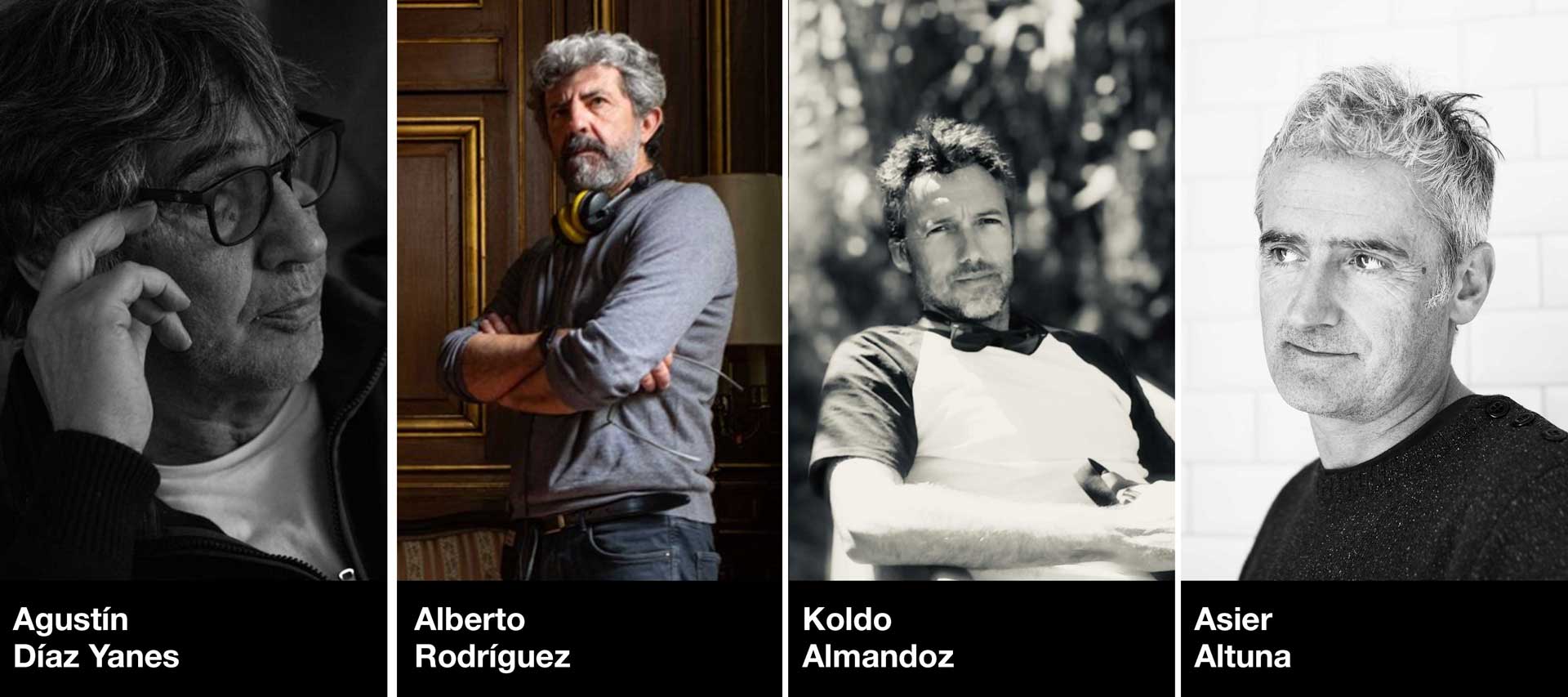
One fiction, one non-fiction and two series in the Official Selection Special Screenings
The Official Selection Special Screenings will include four titles out of competition: one fiction, another non-fiction, and two series.
In the 4-episode series Zeru ahoak / Sky Mouths, Koldo Almandoz (San Sebastián, 1973) returns to the characters of Hondar ahoak / Mouths of Sand (2020) to weave a new thriller starring Nagore Aranburu, Josean Bengoetxea, Ramon Agirre, Miren Gaztañaga and Sara Cozar. The second feature from Almandoz, Oreina / The Deers (New Directors, 2018), won the Irizar Basque Film Award, although his numerous shorts had previously participated in sections such as Zabaltegi-Tabakalera, Zinemira-Kimuak and the Velodrome, whilst his feature debut, Sipo phantasma / Ghost Ship (2016), was selected for Zabaltegi-Tabakalera following its screening at Rotterdam.
The period drama Karmele, directed by Asier Altuna (Bergara, 1969) and included in the Europe-Latin America Co-Production Forum in 2019, is an adaptation of the novel by Kirmen Uribe, Elkarrekin esnatzeko ordua (The our of waking together), starring Jone Laspiur, Eneko Sagardoy, Nagore Aranburu and Javier Barandiaran. Altuna formerly joined Telmo Esnal to co-direct Aupa Etxebeste! (New Directors, 2005), winner of the Youth Award, as well as an episode of the omnibus film Kalebegiak (Velodrome, 2016) and Agur Etxebeste! (Basque Cinema Gala, 2019). Single-handed, he has participated in the Official Selection with two feature films, Bertsolari (2011), screened out of competition, and Amama / When a Tree Falls (2015), winner of the Irizar Award. He also contributed with an episode to the feature film Gure oroitzapenak (Zinemira, 2018), having premiered ARZAK since 1897 (Culinary Zinema, 2020) and Hondalea: abismo marino / Hondalea: Marine Abyss (Basque Cinema Gala, 2021) in San Sebastián.
Flores para Antonio is the title of the non-fiction movie with which Isaki Lacuesta (Girona, 1975) and Elena Molina (Madrid, 1986) explore the life and legacy of the musician Antonio Flores through the mountain of archive material and testimonials of his daughter Alba Flores and his sisters Lolita and Rosario, as well as many other artists. Lacuesta is one of the few filmmakers to have won the Golden Shell on two occasions, with Los pasos dobles / The Double Steps (2011) and Entre dos aguas / Between Two Waters (2018), having also participated in the Official Selection with Los condenados / The Damned (FIPRESCI Prize, 2009) and, out of competition, with Murieron por encima de sus posibilidades / Dying Beyond Their Means (2014) in addition to an episode of the series Apagón / Offworld (2022). Perlak programmed Un año, una noche / One Year, One Night (2022) after having competed at Berlin, in Zabaltegi-Tabakalera he showed La noche que no acaba / All the Night Long (2010) and El cuaderno de barro / The Clay Diaries (2011), and in Made in Spain, Segundo premio / Saturn Return (2024), co-directed with Pol Rodríguez and winner of the Golden Biznaga and Silver Biznaga for Best Directing and Best Editing in Málaga. Molina, for her part, is the author of non-fictional movies such as Rêve de Mousse (2018) and Remember my name (2023), which bagged the Silver Biznaga Audience Award in Málaga.
Óscar Jaenada and Ricardo Gómez star in La suerte / Fate, a series of 6 episodes directed by Paco Plaza (Valencia, 1973) and Pablo Guerrero (Lorca, 1975) about a taxi driver who suddenly finds himself driving for a bullfighter and his team. Completing the cast of La suerte are Carlos Bernardino, Óscar Higares, Pedro Bachura, Jason Fernández, Óscar Reyes, Almudena Amor, Almudena Cid, Diana Peñalver, Aria Bedmar and Manuel Morón among others. Plaza competed in the Official Selection with La Abuela / The Grandmother (2021) after showing in Made in Spain [REC] (2008) and [REC]2 (2010), co-directed with Jaume Balagueró, and Verónica (2017). Last year his film Mugaritz. Sin pan ni postre / Mugaritz. No Bread, No Dessert (2024) carried off the Culinary Zinema Award.
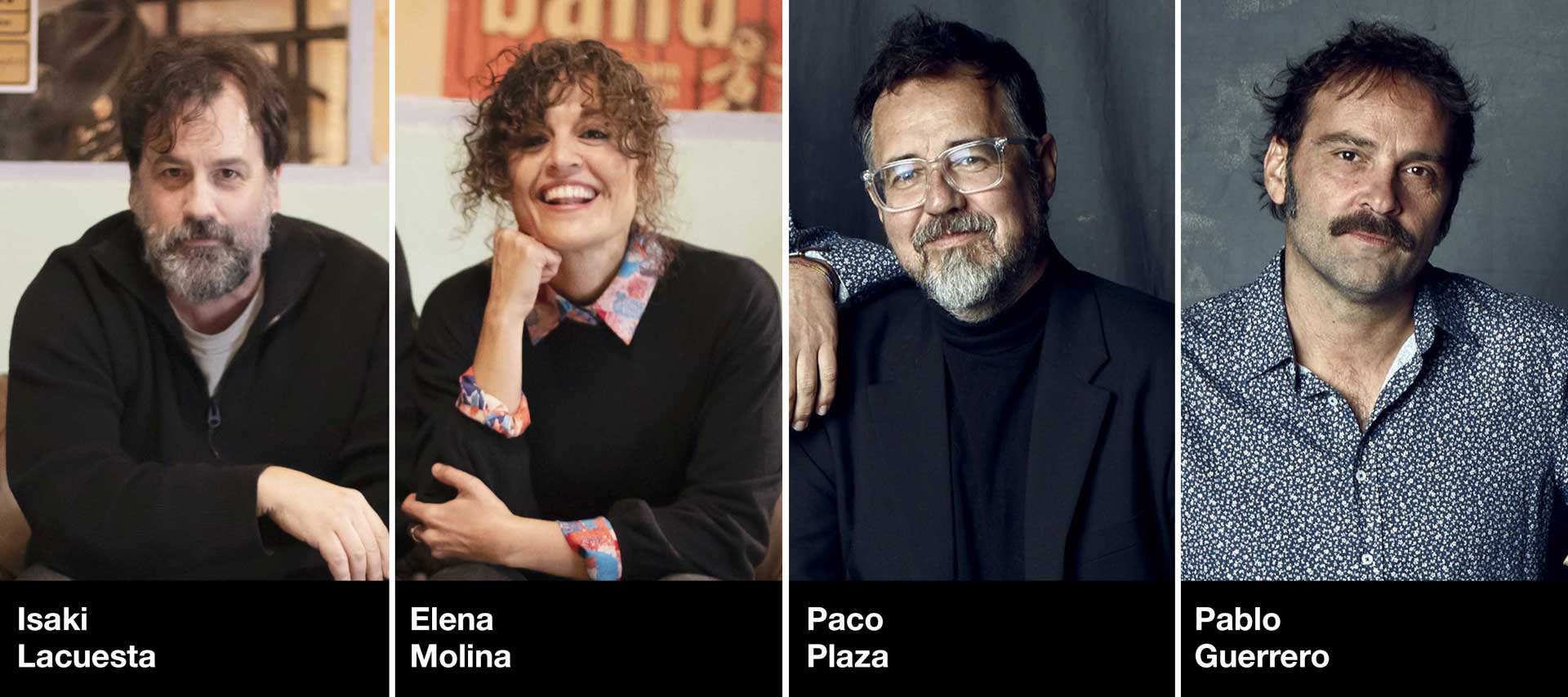
Two titles in New Directors
Irati Gorostidi Agirretxe (Eguesibar, 1988) brings her directorial debut with the feature film Aro berria, which participated at its project stage in the Ikusmira Berriak residencies programme, as well as in other renowned residencies such as the Locarno Residency and FidLab, following the workers’ struggle of the 70s and the community experiences to have emerged at the time in the Basque Country. Several of Gorostidi’s works have shown at the Festival, such as, for example, Unicornio (Zinemira Kimuak, 2021) and Contadores (Zabaltegi-Tabakalera, 2023), which was part of the Kimuak catalogue following its premiere at the Cannes Semaine de la Critique.
La lucha / Dance of the Living is the second feature as a director from the also producer and cinematographer José Alayón (Tenerife, 1980), who made his debut with Slimane (2013). In this new film, shot on the island of Fuerteventura, he narrates the relationship between a father and a daughter, both Canarian wrestlers, following the death of his wife and her mother.
Ikusmira Berriak, Un Certain Regard and Silver Bear Jury Prize-winners, in Horizontes Latinos
Winner of the Ikusmira Berriak 2020 Award, La misteriosa mirada del flamenco / The Mysterious Gaze of the Flamingo is the feature debut that bagged Diego Céspedes (Santiago de Chile, 1995) the Un Certain Regard Award at Cannes. This is a modern western following a young girl and her quest for revenge when her family is accused of causing a strange disease related to love between men. The Chilean moviemaker won the Nest Award with his first short film, El verano del león eléctrico / The Summer of the Electric Lion (2018), having participated with the second, Las criaturas que se derriten bajo el sol / The Melting Creatures (2022), in the Semaine de la Critique at Cannes and later in Zabaltegi-Tabakalera.
Argentina’s Iván Fund (San Cristóbal, 1984) will show El mensaje / The Message, winning feature of the Golden Bear Jury Prize at the last Berlin Festival which was selected for the Europe-Latin America Co-Production Forum in 2023 and WIP Latam in 2024. The latest work from the author of Piedra noche / Dusk Stone (Horizontes Latinos, 2021), premiered at the Giornate degli Autori in Venice after landing the WIP Latam Industry Award in 2020, is an emotional road movie about a 9 year-old girl and her guardians as they get by making a living as pet mediums.
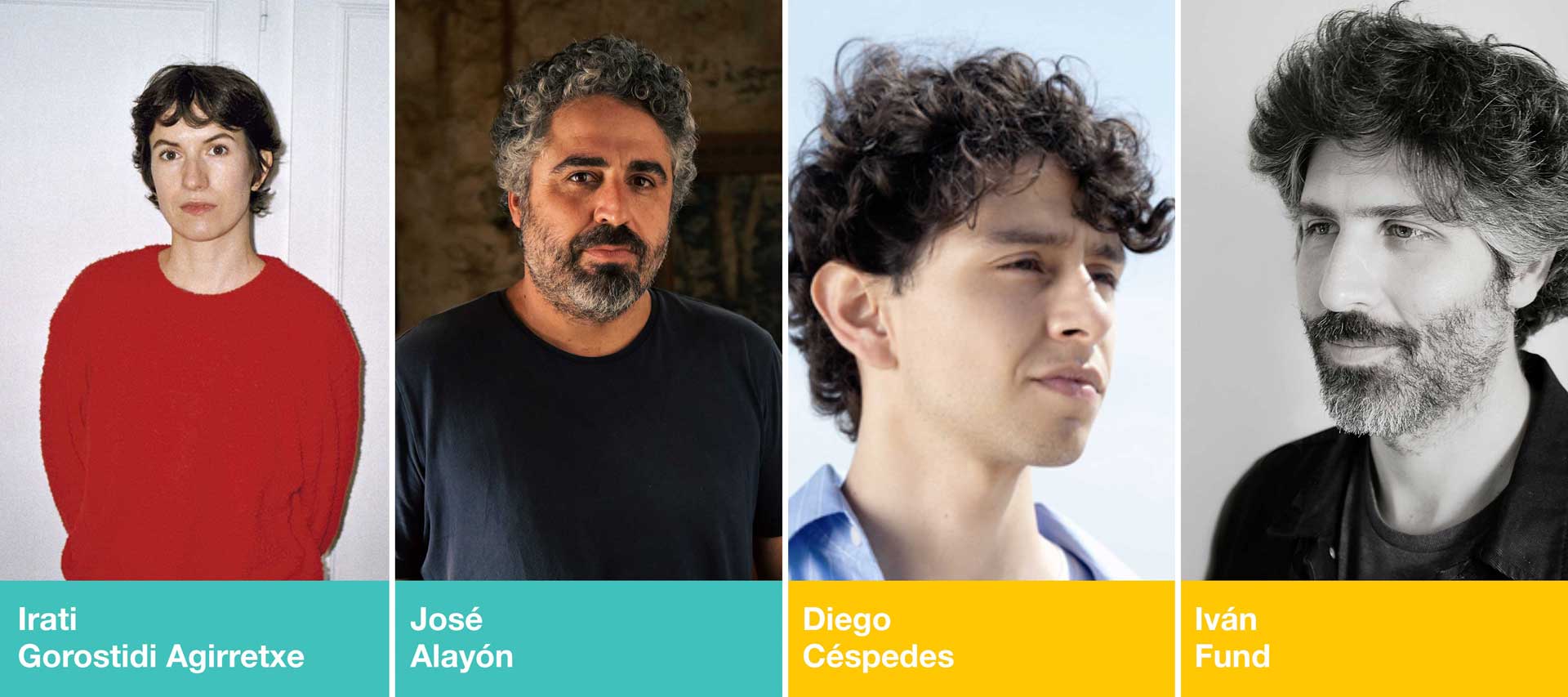
Three feature films and one short in Zabaltegi-Tabakalera
Schwesterherz / The Good Sister, debut feature film from Sarah Miro Fischer (Stuttgart, 1993), tells the tale of a young girl who learns that her brother has been accused of rape. The film, winner of last year’s WIP Latam Europa Industry Award and the WIP Europa Award with the working title of Blaue Flecken / Blue Marks, had its premiere in the Panorama section of the Berlin Festival.
Screenwriter and journalist Marta Medina (Valladolid, 1986) and producer Enrique López Lavigne (Madrid, 1967) bring their directorial debut with El último arrebato / The Last Rapture, a non-fiction focused on the life and work of Iván Zulueta, author of Arrebato (1980), a cult film in Spanish cinema. Medina has written the screenplay of Asedio (Miguel Ángel Vivas, 2023) and López Lavigne has been working for more than 30 years as the producer of titles directed by filmmakers such as J.A. Bayona, Julio Medem, Isabel Coixet, Juan Carlos Fresnadillo, Nacho Vigalondo, Paco Plaza, Jacques Audiard and Javier Ambrossi & Javier Calvo.
Zabaltegi-Tabakalera will host the premiere of the latest work from Sergio Oksman (Sao Paulo, 1970), Una película de miedo / A Scary Movie, in which a documentary-maker and his 12 year-old son stay in an abandoned Lisbon hotel. The author of titles including Goodbye, America (2006), O futebol / On Football (2015), premiered in competition at Locarno, and A Story for the Modlins (2012), winner of the Goya for Best Short Documentary, has previously participated in the Festival with A esteticista / The Beautician (2012), screened in the 4+1: Contemporary Brazilian Cinema season.
Lur Olaizola Lizarralde (San Sebastián, 1988) will participate in the section out of competition with the short film Bariazioak / Variations, a reflection on life, grieving and its different variations. The Basque filmmaker has directed the short films Xulia (2019), Zerua blu / Blue Sky (2020) and Hirugarren koadernoa / The Third Notebook, which competed at Cinéma du Réel and was included in the Kimuak and Zabaltegi-Tabakalera selections.
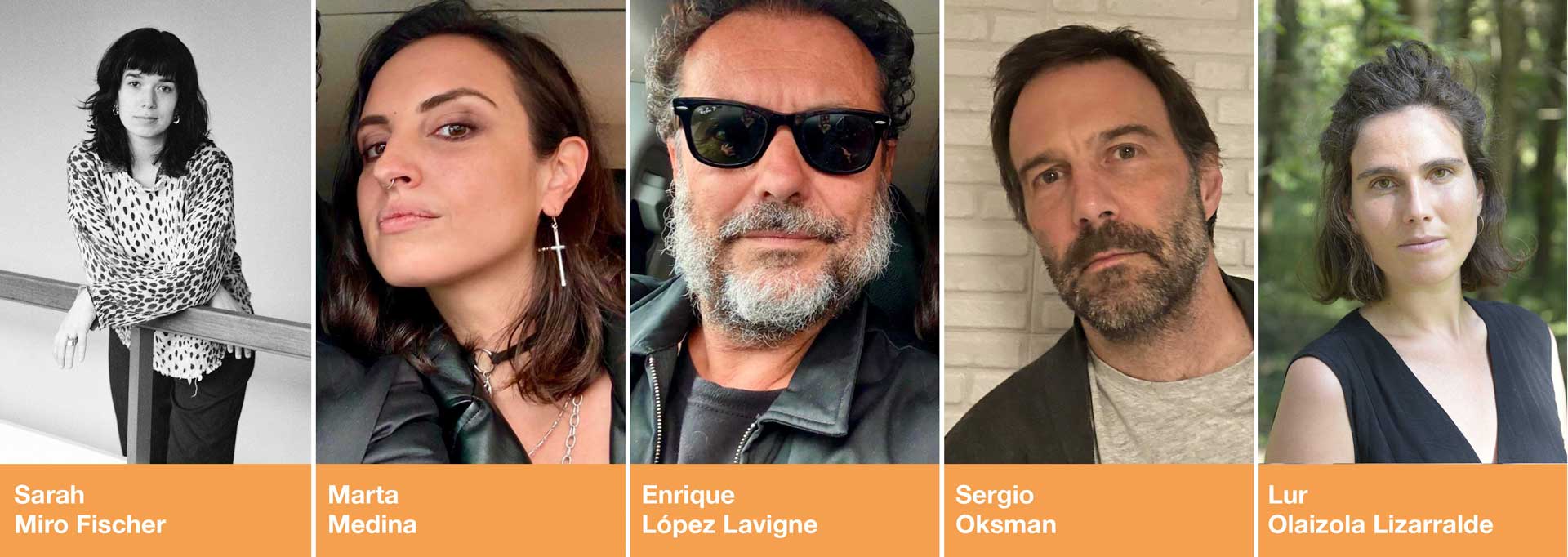
‘Ciudad sin sueño’, in Perlak
Guillermo Galoe (Madrid, 1986) won the Prix SACD at the Semaine de la Critique in Cannes with Ciudad sin sueño / Sleepless City, a feature-length debut shot with non-professional actors in Madrid’s Cañada Real shanty town. In this same setting and with the same characters, Galoe made Aunque es de noche / Even Though It’s Night (2023), which was included in the Cannes official selection of short films and was later programmed in Zabaltegi-Tabakalera.
A feature film from Fernando Colomo and a short by Mabel Lozano, to open Made in Spain
The Made in Spain section will open with the double-bill including the feature film by Fernando Colomo (Madrid, 1946), Las delicias del jardín, and the short film Abril, hoy no es invierno by Mabel Lozano (Toledo, 1967).
Las delicias del jardín / The Delights of the Garden, directed by and starring Fernando Colomo (Madrid, 1946), also features Pablo Colomo, Carmen Machi, Antonio Resines, Brays Efe and María Hervás in the cast. In this film, the moviemaker returns to the autobiographical and humorous tone of La línea del Cielo / Skyline (Official Selection, 1983) and Isla bonita (Zabaltegi, 2015). Its author participated in the New Creators section with his debut movie, Tigres de papel / Paper Tigers (1977), and has shown works in several of the Festival sections, such as La mano negra / The Black Hand (Official Selection, 1980) and El efecto mariposa (Made in Spain, 1996).
The short film Abril, hoy no es invierno / Abril, It's Not Winter Today opens with a lawyer who works for an association dedicated to helping people with cerebral palsy receiving an SOS message on her phone. This is the latest work from Mabel Lozano (Toledo, 1967), a director and producer whose films address issues related to human and women’s rights. Chicas nuevas 24 horas (2015) earned her a nomination for the Goya for Best Documentary, and Biografía del cadáver de una mujer (2020) and Ava (2023) won the Goya Award for Best Short Documentary. Lola, Lolita, Lolaza (2024), her first inroads to the world of animated short films, participated in the first edition of the Loterías Short Films section.
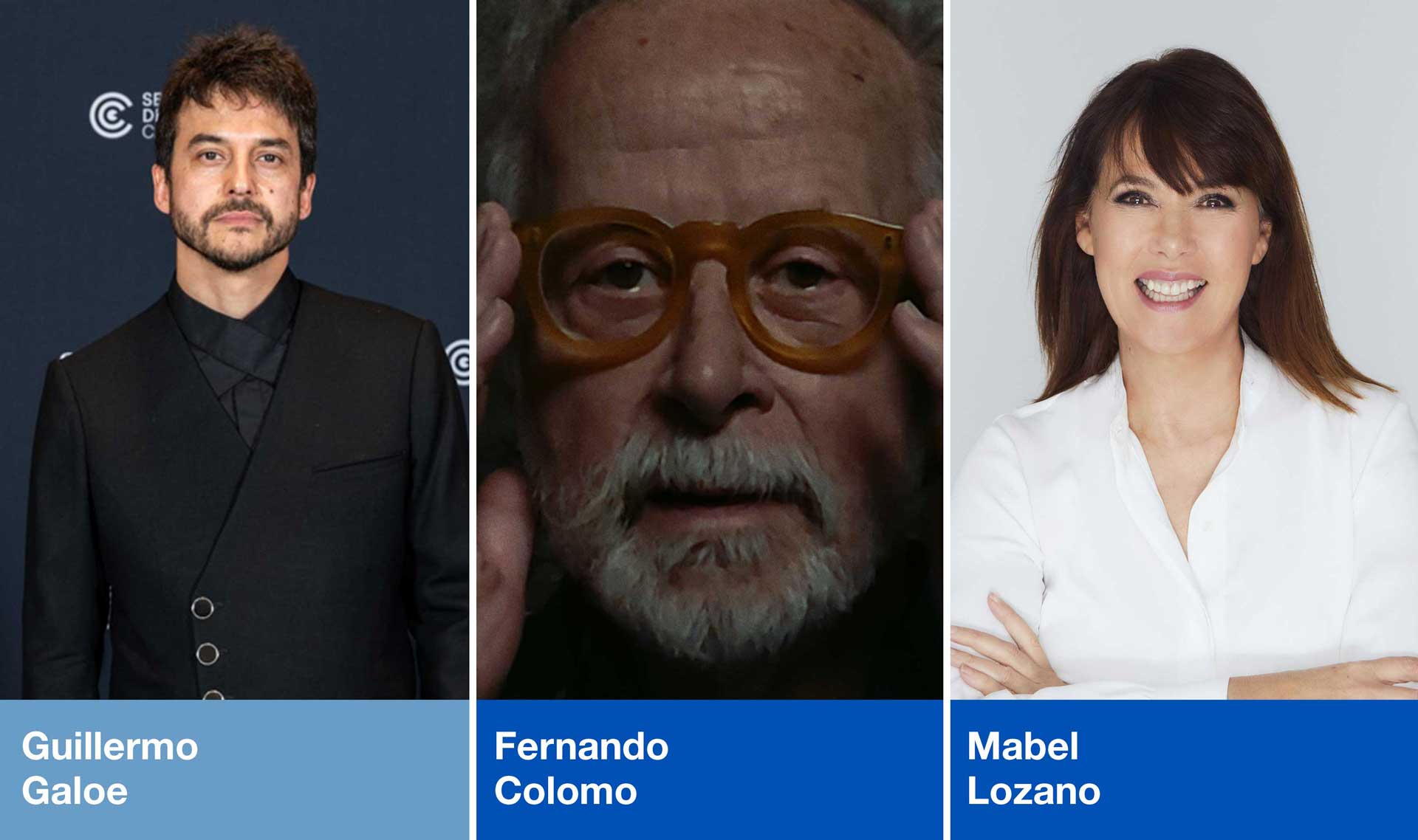
Daniel Sánchez Arévalo and a non-fiction about Leiva in the Velodrome
Among the titles programmed at the Velodrome is Rondallas / Band Together, the latest work from Daniel Sánchez Arévalo (Madrid, 1970), who participated in the Official Selection out of competition with Diecisiete / Seventeen (2019) and showed Azuloscurocasinegro / Dark Blue Almost Black (2006) and Primos / Cousinhood (2011) in Made in Spain. Javier Gutiérrez, María Vázquez, Judith Fernández and Tamar Novas star in this latest work about the inhabitants of a town in Galicia who decide to dust off the village rondalla (traditional music band).
Also to screen on the giant screen in the Velodrome is the non-fiction Hasta que me quede sin voz, a film portraying in first person the vital moment of the musician Leiva, his vortex and the delicate situation he is going through due to an irreversible lesion in one of his vocal cords. The film is the result of a joint endeavour between Mario Forniés (Madrid, 1976), who has produced, amongst many other projects, music videos for the singer-songwriter from Madrid; Lucas Nolla (Madrid, 1978), editor of numerous films, and Sepia (Ushuaia, 1980), photographer and director of music videos.
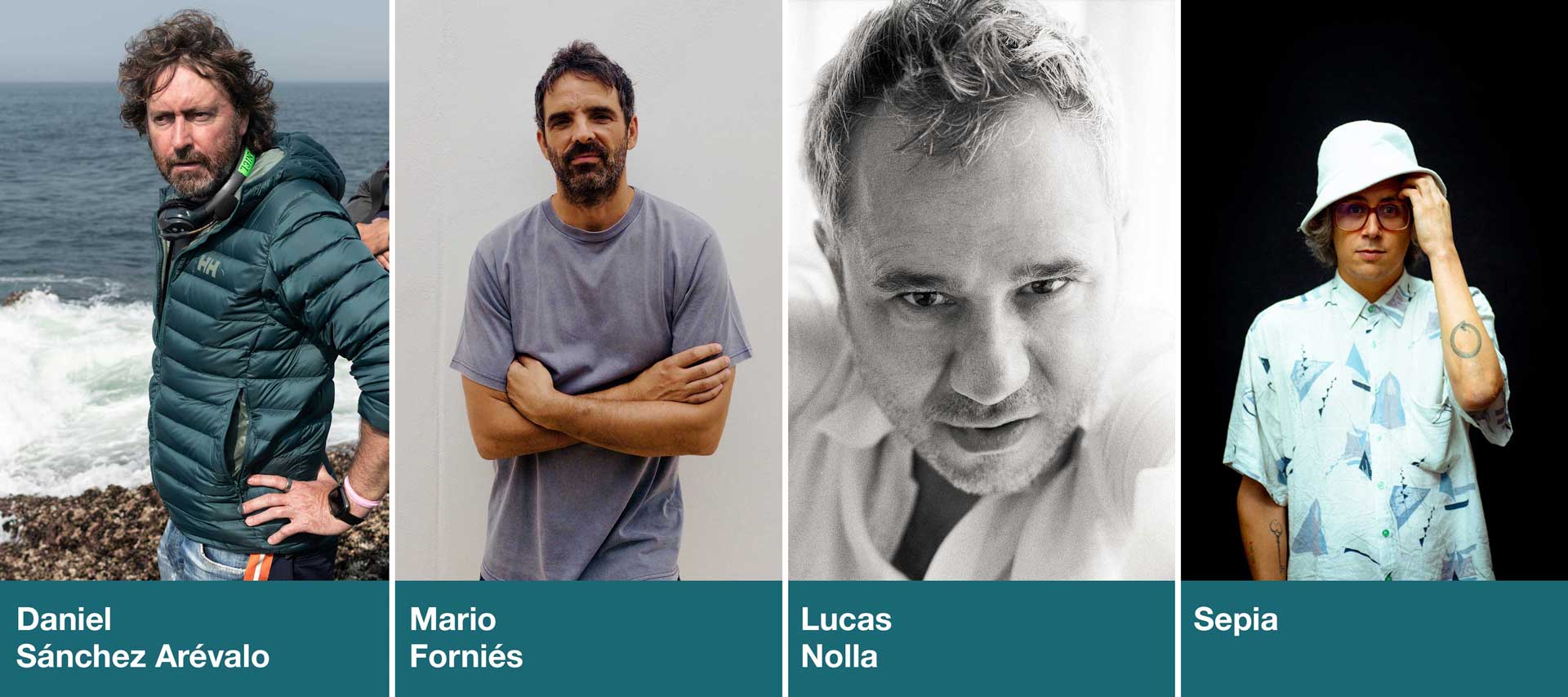
All of these titles will be joined by other new arrivals with Spanish production to be revealed as the programme of the different sections is announced.
OFFICIAL SELECTION - In competition
In a peripheral neighbourhood, where the rural and urban worlds meet, the houses of the first migrants who arrived after the post-war period coexist with the new blocks of the dormitory city, where the latest wave of migration is concentrated. This humble corner is now an authentic global village. Good Valley Stories is a sum of constructs, of social, generational and identity, urban and ecological conflicts, but it is also a calm and humanistic look at today’s world.
Antonio and Estrella are siblings. Their father was a diver. They have spent their whole lives at sea. Antonio is known as The Tiger, an indomitable diver and the perfect buddy to have with you when you risk your life in only a few seconds, every day. Estrella helps her brother on the barge where they work. She keeps him grounded; out of the water, Antonio is a real mess. He has always lived in the moment, never thinking about the future, leaving him with barely a penny to his name. When Antonio has an accident, he is told that his diving days will soon be over. The future looks dark and complicated. However, this situation may just change when they find a stash of cocaine hidden in the hull of an oil tanker. Antonio sees no other option, but his sister Estrella has her doubts. As always.
After breaking up with his partner, 76 year-old Vicente leads life the way he likes it in Maspalomas: he spends his days lying in the sun, partying, and looking for pleasure. An unexpected accident obliges him to return to San Sebastián and to the daughter he abandoned years ago. Vicente will have to live in a retirement home where he finds himself driven back into the closet and to conceal a part of himself that he thought was long resolved. In this new environment, Vicente must ask himself if he has enough time left to make his peace with others… and with himself.
OFFICIAL SELECTION - Not in Competition
When Tejero stormed the Spanish Congress building gun in hand, only three men stayed in their seats whilst the others crouched down to protect themselves: Adolfo Suárez, Santiago Carrillo and Gutiérrez Mellado. Through these three men who led the transition to democracy and the three ringleaders of the coup d’état —Tejero, Milans and Armada—, the series follows the chain of events and tensions that brought the country to the brink of returning to the former military regime.
She Walks in Darkness draws inspiration from the biggest covert operation against ETA, which marked a turning point in the fight against terrorism in Spain. Based on the historical, political and social context of the 90s and the 2000s, the film tells the story of Amaia, a young Civil Guard who spends more than ten years with the terrorist group as an undercover agent, tasked with finding the hiding places used by the organisation in southern France.
OFFICIAL SELECTION - Special Screenings
A daughter sets out to find out the truth about the man who was her father, a legendary musician, who died when she was 8 years old. He is Antonio Flores, and she the also famous actress Alba Flores. Alba stopped singing when she lost Antonio and is now determined to recover her voice and her background, asking family members and friends for the first time.
The Basque Country, 1937. Driven from their home when war breaks out, Karmele and her family flee to France, where she is contacted by the Basque cultural embassy in exile, who use music and dance to combat the war. There she meets and falls in love with Txomin, a professional trumpet player. After living in Venezuela for a time, the couple come home with the hope of recovering everything that was taken from them.
In Fate, a shy young taxi driver and aspiring public office candidate, David (Ricardo Gómez) unexpectedly becomes the chauffeur of El Maestro (Óscar Jaenada), a former bullfighter who comes out of retirement to recover his lost reputation. El Maestro is on a losing streak and David and his taxi bring him luck, or at least that’s what he thinks…
Nerea Garcia is having a rough time of it; it’s four years since she was thrown out of the Basque Ertzaintza police force and she now leads a solitary life in her Bilbao home. The appearance of a woman’s corpse, murdered in some kind of ritual, prompts her former boss to ask her for help with the investigation. What Nerea hadn’t realised is that ghosts from the past and present would lead her down into the bowels of the city, where nothing and nobody is what it seems.
NEW DIRECTORS
San Sebastian, 1978. The workers at the water meter factory hold an assembly to discuss a strike, which ultimately fails. Disappointed, the most non-conformist workers turn their aspirations for radical transformation towards more intimate spheres. Some leave the factory to join an isolated community in the mountains, where dozens of young people embarked on an intense journey of shared cathartic experiences.
On the arid island of Fuerteventura, Miguel and his daughter Mariana try to move on after his wife dies, a loss that has cast them both adrift. Canarian wrestling is their refuge, their way to make a place for themselves in the world. But Miguel’s body is starting to fail, and Mariana’s rage pushes her to break the rules. With the championship final just around the corner, father and daughter must find their way back to one another before it’s too late.
HORIZONTES LATINOS
At the height of the financial crisis, a girl with the gift of being able to talk to animals and her opportunistic guardians make a living from organising pet medium sessions as they travel in a small camper van along the dusty trails of the Argentinian countryside. A supernatural business, where the transcendental means cash and opportunism brushes with the truth. Magic or scam, the service is real and innocence a treasure.
In the early 80s, in the Chilean desert, 11-year-old Lidia is raised by a queer family banished to the outskirts of an unpleasant and dusty mining town. They are accused of causing a mysterious disease that’s starting to spread, said to be passed on through a simple gaze, when one man falls for another. In this modern western, Lidia leads the quest for revenge, taking on the violence, the fear and the hatred, where the family is her only haven and love could be the real danger.
ZABALTEGI-TABAKALERA
Alicia teaches book binding to students Maite, Unai and Merche. They share a workshop where they cut, sew and glue the pages to give the books a longer life. While each one works on their book, they talk about life, grief and its different variations.
Arrebato (1980) is the greatest cult movie of today’s Spanish cinema and Iván Zulueta, its director, an accursed filmmaker. Arrebato was the film that forecast the end of the movida, a dark and harrowing reel whose history and intra-history are intimately linked. Arrebato acts as a premonition of the director’s own life. Just like his actors, Zulueta will end up being brought down by drugs and the cinema and, like them, will also disappear.
Rose dotes on her beloved elder brother, Sam. When a woman accuses Sam of rape, Rose is asked to testify in a case brought against him. This will put both their relationship and her moral integrity to the test.
During the summer holidays, a documentary-maker and his 12-year-old son stay at an abandoned hotel in Lisbon: an empty hotel like the one in the movie The Shining.
PERLAK
Toni is 15 and lives in Cañada Real, Europe’s biggest irregular shanty town, on the outskirts of Madrid. Proud of belonging to his family of scrap dealers, he spends his days with his grandfather, whom he admires and follows wherever he goes. But the demolition machines are approaching their plot, threatening to destroy everything they know. The grandfather refuses to leave, no matter what the cost. In dark nights with no electricity, the legends of his childhood feel more real than ever before. While everything around him changes, Toni must make a choice: to face an uncertain future or to cling on to a disappearing world.
MADE IN SPAIN
Ángeles Blanco is the lawyer of an association that helps people with cerebral palsy. One day she receives a message on her phone, saying: SOS. Nothing else. Ángeles immediately replies. She asks for more information, insistently, but to no avail. After several days without news she receives another message: yet another SOS, this time followed by a crying emoji. Ángeles knows that somebody on the other side of that telephone needs her, but if they want her to help they’ll have to find a way to communicate with her.
An ageing artist in the twilight of his career, Fermín’s hand has started to shake. On the brink of financial ruin, he will have to move into the studio he shares with his friend Javier de Juan in an old garage, to which his son Pablo, also a painter, arrives on his return from a long trip to India, intending to stay with him. Their widely differing approaches to art and life will soon spark arguments between the two. Pepa, Pablo’s mother and Fermín’s ex, makes a suggestion: that they enter a competition to create their own version of Hieronymus Bosch's The Garden of Earthly Delights, which could solve their financial problems.
VELODROME
With the chasms that doing so entails, Leiva personally paints a raw and unpretentious portrait of the frantic spiral of his existence today, giving us an unwonted glimpse of his life at the height of his career. An irreversible vocal cord issue constantly challenges the present and future of a Leiva incapable of conceiving any option other than to keep going. Until his voice gives out.
Two years after the tragic sinking of a fishing boat that shook a small seaside town, the members of the rondalla, a traditional music band, decide to get back together in the endeavour to recover their enthusiasm and leave the grieving behind.
